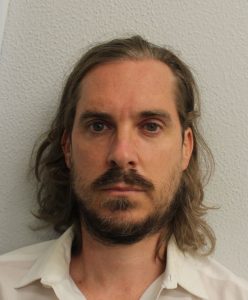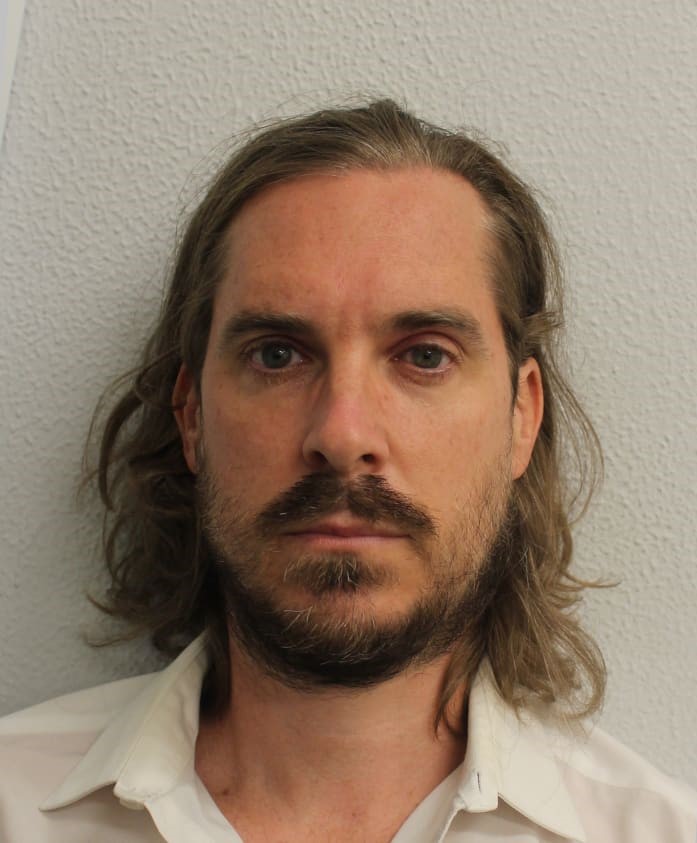A Metropolitan Police officer has been jailed for three years after he used hidden spy cameras to film naked women in Brighton, London and Manchester.
Detective Inspector Neil Corbel, 40, posed as an airline pilot to book models for photoshoots before planting the gadgets in hotel rooms, flats and Airbnbs.
The cameras were hidden in everyday items, including tissue boxes, phone chargers, air fresheners, glasses, keys and headphones, to video his unsuspecting victims for up to four hours.
Married father-of-two Corbel, a former counter-terrorism officer, was caught after a model, who had agreed to pose naked for a photo shoot, became suspicious of a digital clock.
An internet search of the brand name revealed that the “clock” was a high-end spyware video-recording device which could be controlled from a smartphone.
When he was arrested, Corbel told police he was addicted to pornography and officers found images of 51 women on his hard drive, with 19 victims, including 16 models and three escorts, agreeing to make statements against him.
Corbel, who resigned after being suspended by the Met, where he was attached to the Continuous Policing Improvement Command, pleaded guilty to 19 voyeurism offences at Westminster Magistrates’ Court in September.
Judge Martin Edmunds jailed Corbel for a total of three years at Isleworth Crown Court today (Friday 21 January) for the offences across the London, Manchester and Brighton areas from January 2017 to February 2020.
He told Corbel: “You used a range of deceptions to induce women to take off their clothes in your presence so you could record videos for your sexual gratification.
“You did so using multiple strategically placed covert cameras, sometimes as many as nine.”
The judge said that the victims had each set “clear boundaries” and “were entitled to have the personal autonomy”.
He added: “It is clear that you derived satisfaction from breaching those boundaries by committing these offences rather than seeking out persons who might have offered the opportunity to video them without deception.
“You did not exploit your police role either to locate or intimidate your victims – rather it was something concealed from them.
“Further, the covert recording devices you used appear to have been readily available to purchase on the internet.

“There is no evidence you used police equipment or specialist police knowledge.
“However, it is clear that the revelation to your victims that you were a serving police officer has for many of them seriously undermined their trust in the police, something that for those individuals, given their various lines of work, is a particularly serious matter, just as the revelation of your offending must impact on public trust.”
Three of Corbel’s victims watched as he was jailed, having faced him in court to read their victim impact statements.
One model, who agreed to pose for a “fashion and artistic nude shoot”, was visibly angry as she told Corbel that his crimes had “affected every aspect of my life”.
She showed her scalp to the court and said: “I have pulled so much of my hair out with stress I have bald spots and have had to turn down work.”
Other victims, who were not in court, mentioned the case of 33-year-old marketing executive Sarah Everard, who was snatched off the street before being raped and murdered by Met PC Wayne Couzens, 48.
“The fact that he is a policeman is a huge deal,” said one. “These people are meant to protect us. Following the murder of Sarah Everard, this feels like a very frightening time to be a woman.”
Opening the case, Babatunde Alabi, prosecuting, said that Corbel, from Hertfordshire, contacted victims online using the name “Harrison”.
Mr Alabi said: “He claimed to be an airline pilot who had an interest in photography.
“He recorded the victims using cameras disguised as everyday items, including phone chargers, tissue boxes, digital clocks, air fresheners and headphones.
“In addition, he also recorded the victims using a mobile phone and DSLR camera with which he was taking still photographs.”
Edward Henry, defending, said that Corbel felt “genuine remorse” for the “deplorable activity” but was voluntarily seeking to “combat” his sex addiction.
He said that Corbel, who had “put people away who would have done terrible harm and caused much bloodshed” during his 13-year career, did not spend police money or commit the offences in police time.
Mr Henry said: “He crossed the line from addiction that may harm himself to an addiction that caused these criminal offences at a time when he was under acute stress at work.”
“It is not an abuse of trust in the actual commission of the offence but obviously as his victims found out about it, it would have, in the discovery he was a police officer, naturally undermined their trust and confidence.”








